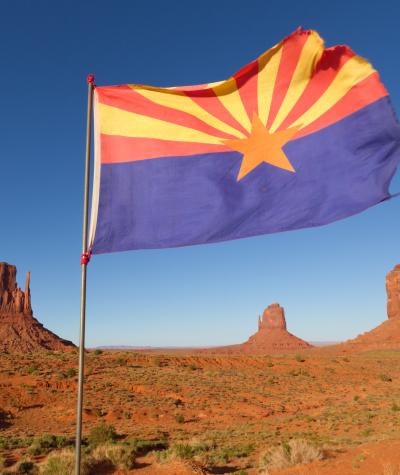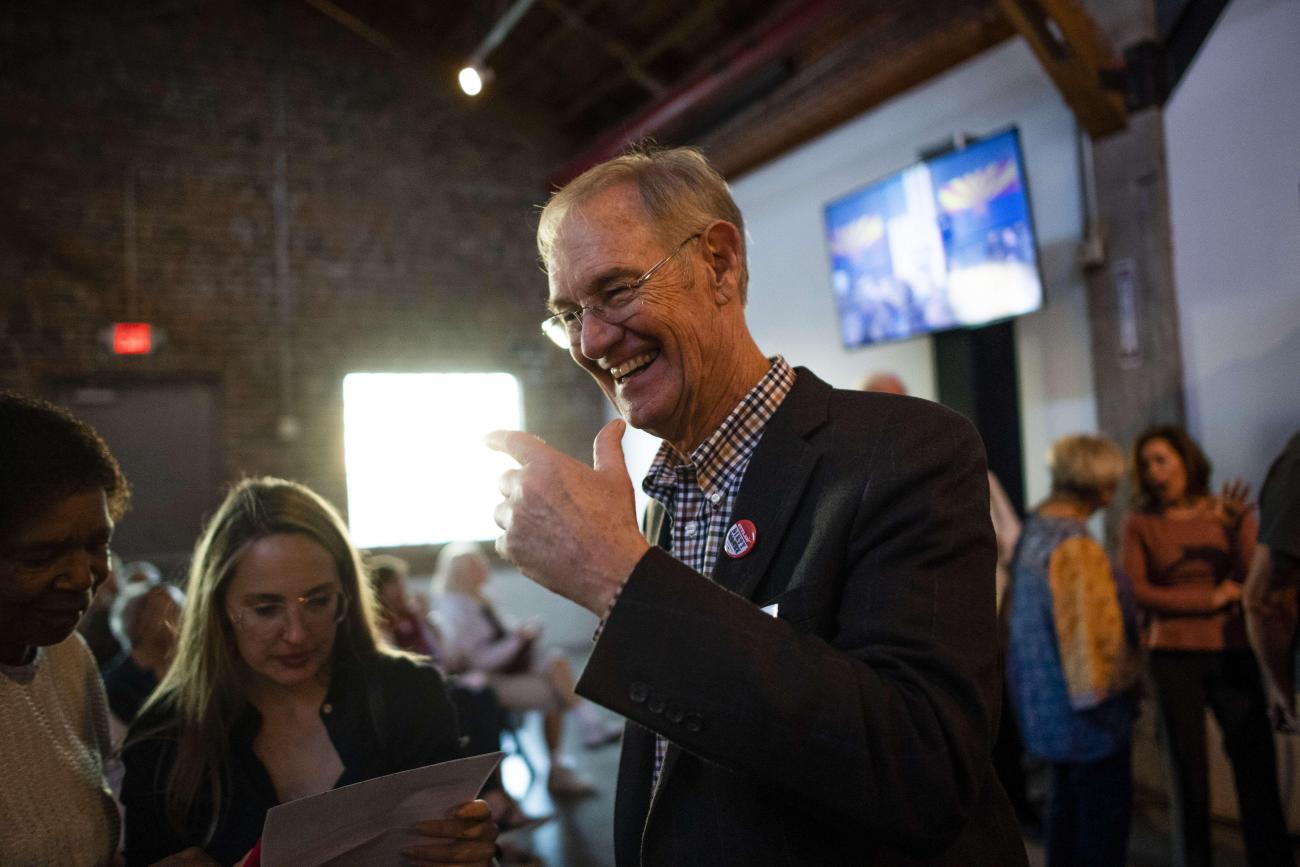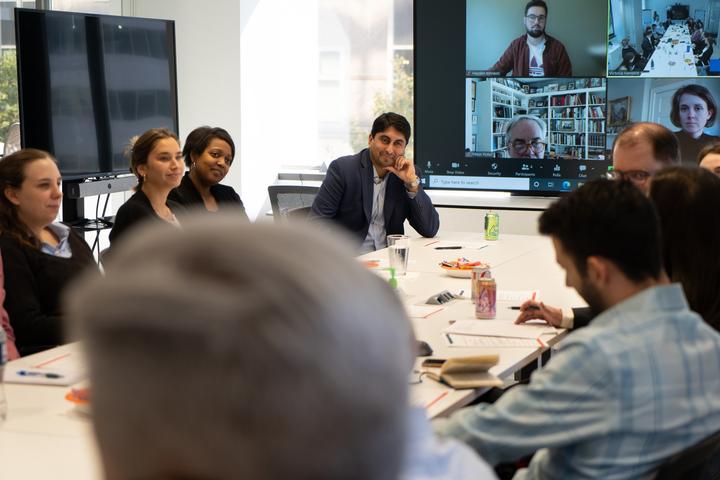Defending Prop 211 in court
Within months of passage, powerful special interests filed two separate lawsuits —one in state court and one in federal court —challenging the constitutionality of Prop 211. At that moment, the partnership that had begun years before shifted into a new phase, with CLC Action representing the Voters’ Right to Know committee in defense of Prop 211. A third lawsuit was filed in state court in early August of this year challenging the authority of the Arizona Clean Elections Commission, which is tasked with implementing the law. All three lawsuits are aimed at stopping Prop 211 before it can be put to work on behalf of Arizona voters.
Having worked all along with Voters’ Right to Know in designing the ballot initiative, CLC attorneys and campaign finance experts are perfectly positioned to defend the law.
The contest in both the state and federal cases pits special interests who depend on secret spending to influence politicians and elections in Arizona against voters who want to see a more robust political debate and hold their elected leaders accountable.
As with any substantive legal battle, CLC expects this process to play out over the course of many months, possibly years. As of August 2023, the case in federal court has not proceeded beyond initial motions by CLC and our partners to dismiss the anti-transparency plaintiffs' arguments.
However, there has been notable progress in state court. Following proceedings that included persuasive arguments by David, the Superior Court of Arizona, Maricopa County upheld Prop 211 against a broad attack in a June 22 ruling. Some plaintiffs have been given the chance to go back to the drawing board to reformulate their arguments, but the threat to the law in this case has now been significantly reduced.
The main concern from the point of view of CLC Action’s legal team is the amount of work that will be required should any of these cases proceed to the next phase. As the preeminent campaign finance experts involved with the defense of Prop 211, CLC Action attorneys, including David, will lead efforts to gather evidence, identify witnesses and build a factual record about the history of dark money in Arizona and the nation.
To demonstrate the resources that would be dedicated to this effort, consider the fact that as an FEC attorney, David was part of a team that spent thousands of hours developing a factual record in defense of the Bipartisan Campaign Reform Act of 2002 (also known as McCain-Feingold).
Why is Prop 211 legally sound?
Prop 211’s strength as a law is grounded in the First Amendment of the U.S. Constitution, which assures the unimpeded flow of information to preserve the integrity of our democratic system. Political transparency advances the principles of the First Amendment by encouraging the exchange of ideas needed for voters to make informed decisions. The First Amendment’s overarching aim is to promote democratic self-governance and ensure that elected leaders are responsive to voters.
While these ideas might seem like common sense, they are fairly new to the world of constitutional law. CLC attorneys play a leading role in advancing this innovative view of our founding document, both through policy advocacy and litigation. Their collaboration with Voters’ Right to Know in Arizona focused on ensuring that Prop 211 reflected CLC’s pioneering legal strategy for fixing our broken campaign finance system.
The campaign finance team’s scholarship on this issue is detailed in a CLC analysis released last November defending Prop 211. Among the arguments is the fact that time and again, the Supreme Court has upheld election-related financial disclosure regimes as constitutional and has noted that disclosure requirements “‘impose no ceiling on campaign-related activities,’ and, ‘do not prevent anyone from speaking.’”
It is for these reasons that CLC feels confident that Prop 211 will survive legal challenges.
Ensuring Prop 211 is properly implemented
CLC has a long history of providing expert guidance through the rulemaking process for implementing campaign finance laws, a history dating back to the passage of McCain-Feingold. In the case of Prop 211, Elizabeth Shimek, CLC Senior Legal Counsel for Campaign Finance, is leading the effort to provide insightful comments during the rulemaking process. It’s also worth noting that CLC has a positive relationship with the Arizona Clean Elections Commission.
It is important to note that the rulemaking for Prop 211 will not be as extensive or complex as it has been for other campaign finance laws. Here again, David, Tara and the CLC team had some foresight. Their efforts, in coordination with Voters’ Right to Know, to pass a detailed, comprehensive law via ballot initiative means there are fewer administrative “blank spots” for the Commission to address during the implementation process.
Supporting election spending transparency in other states
The passage of Prop 211 put transparency advocates across the country on notice about the possibilities for progress against the tidal wave of dark money.
CLC staff including Elizabeth, State Campaign Finance Director Patrick Llewellyn and Legal Counsel for State and Local Reform Aaron McKean are engaged in a sustained effort to identify similar opportunities in other states and provide the same kind of legal expertise that produced strong legislation in Arizona.
In Hawaii, legislators introduced a bill this year—SB 997—that would have required big election spenders to disclose the original sources of the money they spend on elections. Although the bill did not advance this session, it followed on the heels of a similar bill passing the Hawaii Senate in 2021, illustrating the strong support for greater transparency in the Aloha State.
Similarly, in Illinois, HB 3804 would have enacted original source disclosure for big election spenders, while also adopting more robust rules to guard against illegal coordination between candidates and outside election spenders. The bill’s introduction provides a strong starting point for improving the state’s campaign laws.
Legislation in Maine (D 1590) is a pending bipartisan bill to require the disclosure of the original sources of big money spent to influence elections in that state. After some favorable action in a legislative committee this session, the bill will be carried over to a future session of the Maine Legislature.
CLC’s hope is that this is just the first wave in a movement at the state level to pass robust election spending transparency laws.
A determined advocate for voters
Our nation has experienced far too many steps backward in the struggle to rein in secret, unaccountable spending in our elections —Citizens United being the most egregious example in recent years.
CLC’s role in the formulation and defense of Prop 211 is a prime example of our leadership in the fight to stop dark money from drowning out the voices of voters. We look forward to seeing the voters of Arizona benefit from this robust transparency law, and our team will continue working to see similar policies adopted across the country.





